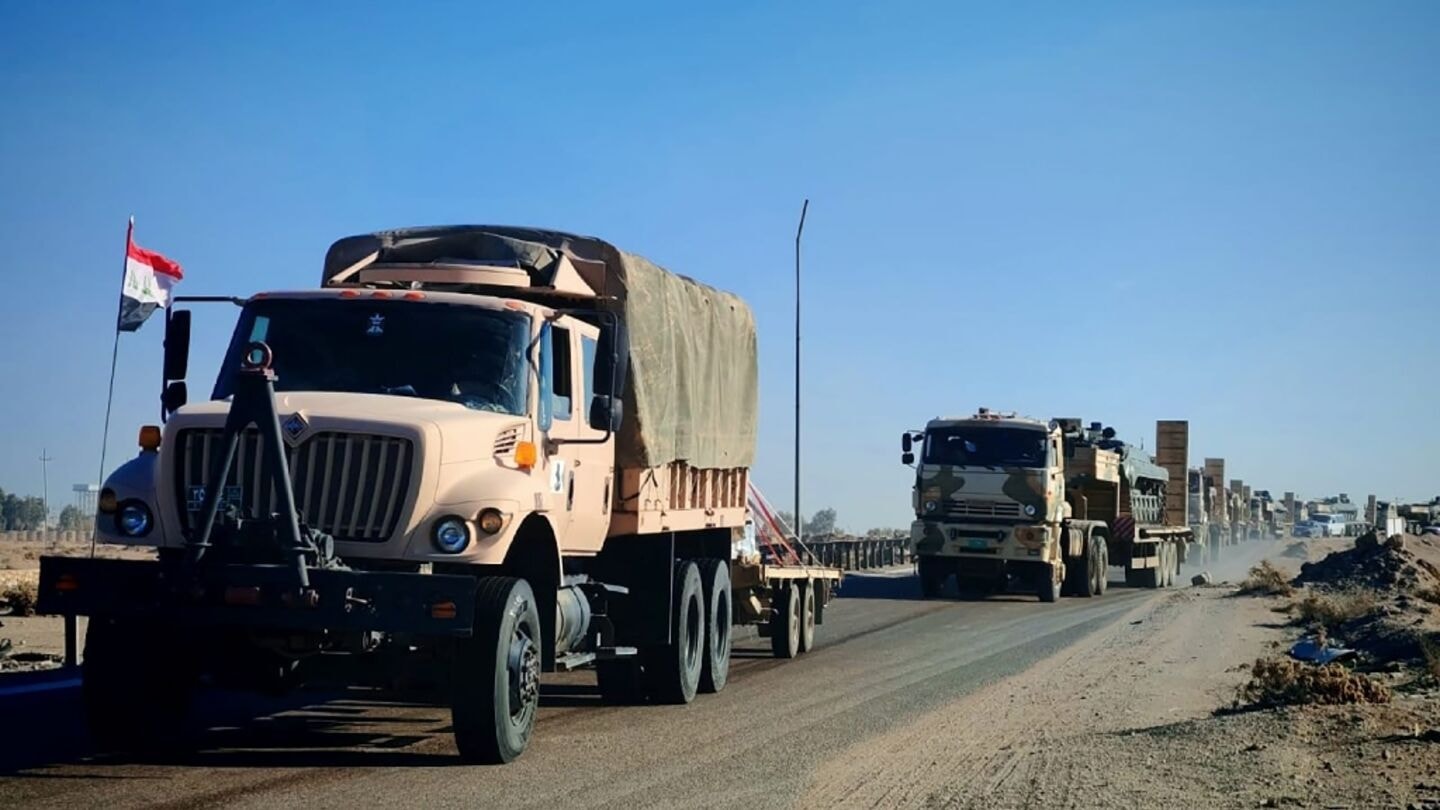Iraq has deployed armoured vehicles to beef up security at its border with Syria after concerns arose over a surprise attack by Syrian rebel fighters on the city of Aleppo.

According to AFP news agency, a lightning attack by the Islamist group Hayat Tahrir al-Sham (HTS) and its allies has caused Syrian government forces to lose full control of Syria's second largest city of Aleppo.
The attacks have raised concerns in Iraq, which is still traumatized by decades of conflict and was hit by a rampage by jihadists from the Islamic State (IS) group.
“Any infiltration on the Syrian-Iraqi border is absolutely impossible, as there are fortifications and combat units deployed there,” Iranian Interior Ministry spokesman General Moqdad Miri said on December 2.
Iran's Defense Ministry said armored units of the Iraqi army have been mobilized to reinforce the border area, from the border town of Al-Qaim in the west to the border with Jordan in the south.
Similar forces have also deployed along the northern border in Nineveh province.
According to Reuters news agency, this move comes after the Syrian Observatory for Human Rights said that 200 gunmen from a pro-Iranian armed group in Iraq had been sent to Syria to support government forces.
The gunmen entered the Boukamal area through the border crossing at Al-Qaim in two waves.
Hundreds of Iraqi militiamen marched into Syria overnight to help the government fight rebels occupying the Aleppo region, Reuters reported.
"These are new reinforcements sent to support our comrades on the northern frontline," a senior Syrian military source said, adding that the fighters had split into small groups to travel to Syria to avoid air strikes.
These groups have long played a crucial role in supporting Syrian President Bashar al-Assad's government in its fight against rebels since 2011 and have maintained military bases in Syria for a long time.
However, leaders of Iraqi armed factions such as Kataib Hezbollah, Al-Nujaba and Kataeb Sayyid al-Shuhada have denied sending reinforcements.
“Any such decision is still premature,” a Kataib Hezbollah commander told AFP.
IS seized large swaths of Iraq and Syria in 2014, declaring itself an “Islamic Caliphate.”
The group was defeated by local forces in Iraq in 2017 with the support of a US-led international military coalition.
“Iraq has taken firm precautions after the painful experience of 2014,” Qais al-Mohamadawi, deputy commander of Iraq’s joint operations, said on November 29.
Meanwhile, Syrian state media reported on December 1 that President Bashar al-Assad, speaking during a meeting with Iranian Foreign Minister Abbas Araghchi in Damascus, affirmed that he would continue the fight against terrorist organizations with all his strength and determination. President Assad stressed that Syria's fight against the rebels not only serves national interests but also serves the stability of the entire region.
“Confronting terrorism, destroying its structures and depleting its resources is beneficial for the entire region,” Assad said, stressing the importance of support from allies in countering terrorist attacks backed by foreign powers.
For his part, Mr. Araghchi conveyed the message of the Iranian leaders about the Islamic Republic's support, affirming Tehran's commitment to Syria's territorial integrity and readiness to provide comprehensive support to Damascus in the ongoing conflict in this Middle Eastern country.
Earlier, the Syrian government convened an extraordinary meeting to assess the situation in Aleppo, acknowledging the challenges facing state institutions.